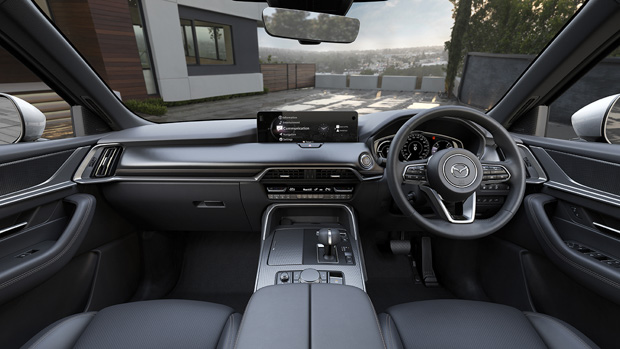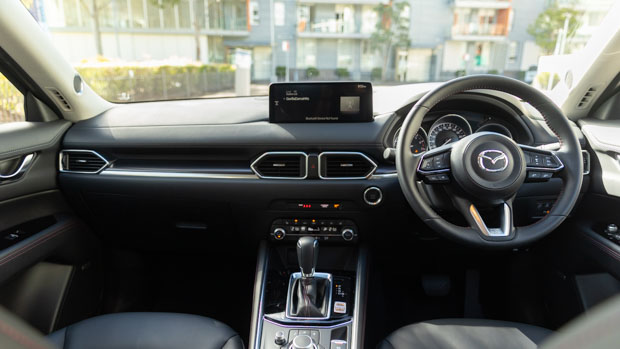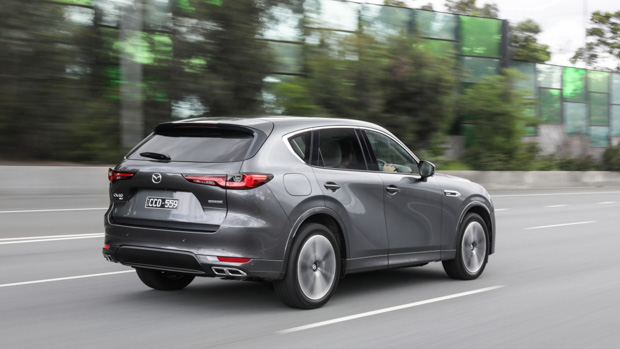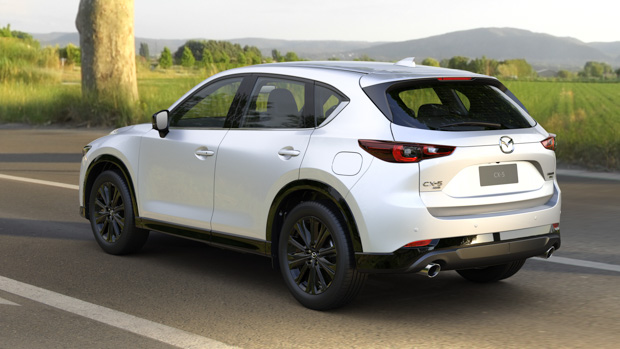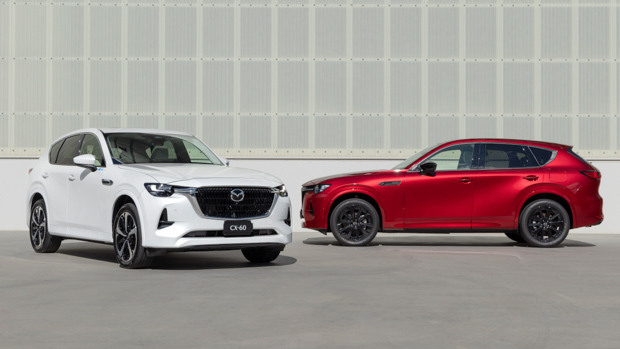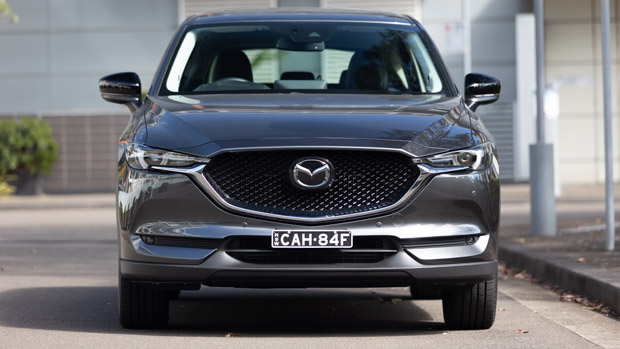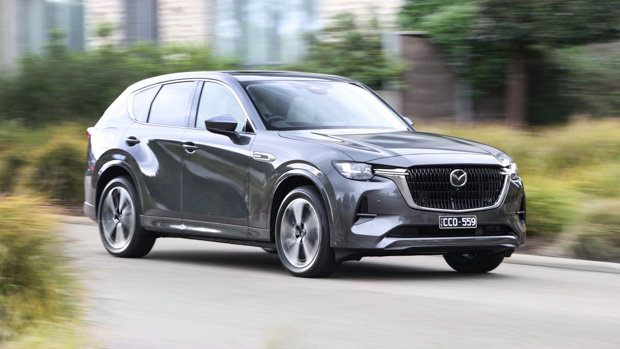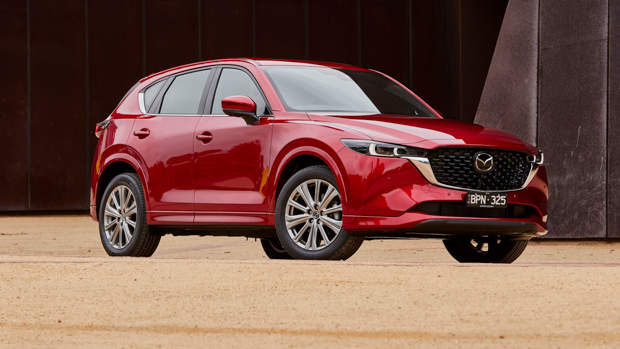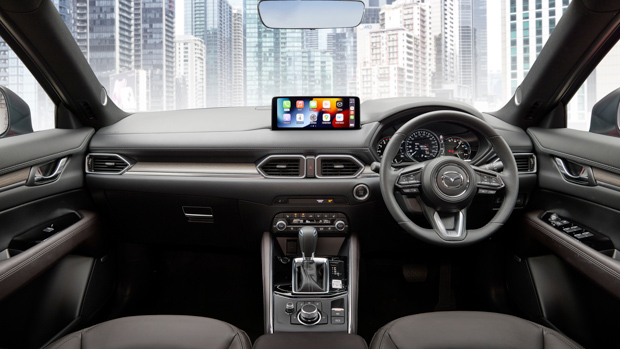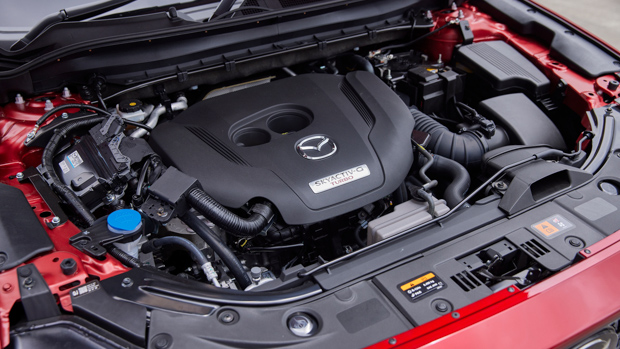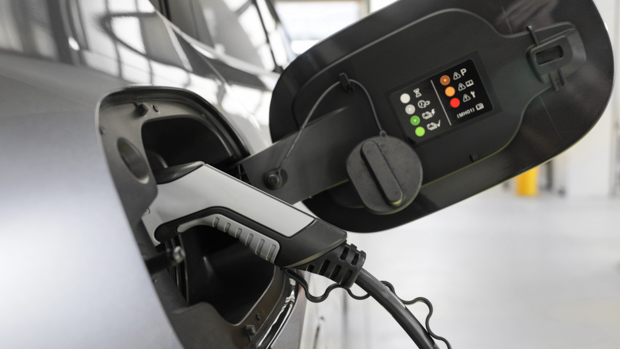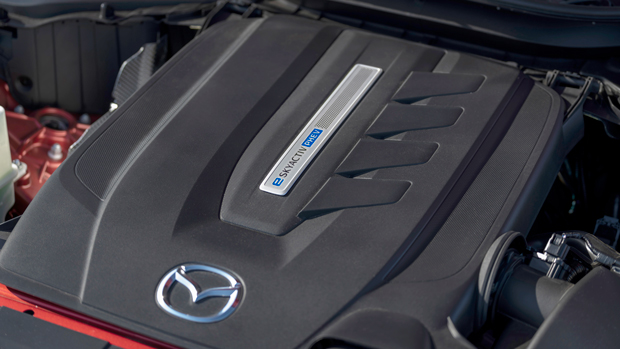-
Car Reviews
- All reviews
- Midsize SUVs
- Small cars
- Utes
- Small SUVs
- Large SUVs
- Large cars
- Sports SUVs
- Sports cars
- Vans
Latest reviews
- Car News
-
Car Comparisons
Latest comparisons
- Chasing Deals
Mazda is soon to launch its new luxury CX-60 midsize SUV, but how different is it to the current CX-5?
Mazda is set to launch its forthcoming midsize premium SUV, the CX-60, into the Australian market in June 2023. It’s set to compete with the likes of the Audi Q5, BMW X3 and Volvo XC60.
Here at Chasing Cars, we wanted to know how much the new midsize SUV differs from Mazda’s current CX-5 offering.
Let’s put the two models back to back and find out what differentiates the CX-5 with its new upmarket sibling, the CX-60.
Starting out with dimensions, the new CX-60 measures in at 4745mm long, 1685mm tall and 1890mm wide, with a wheelbase measuring 2870mm.
The CX-5, in comparison, measures in at 4575mm long, 1680mm tall, 1845mm wide and has a wheelbase of 2700mm.
This means that the new CX-60 is longer and wider than the related CX-5 and has a longer wheelbase, too.
Inside, boot space is measured at 477 litres for the CX-60, 39 litres more than the CX-5.
However, the CX-60 is a chunky car, weighing in at 1980kg in PHEV guise, while the CX-5 in top-spec Akera turbo guise weighs just 1720kg.
With the CX-60 being Mazda’s second premium offering behind the CX-30, the model does command a significant premium over the CX-5.
Currently, the CX-5 is priced from $35,390 for a base, front-wheel-drive Maxx, while at the other end, the turbo-diesel-powered CX-5 Akera all-wheel drive is priced from $54,380 before on-road costs.
In CX-60 land, the model begins at $59,800 before on-road costs for an Evolve six-cylinder turbo petrol, however if you have your heart set on the high-spec Azami plug-in hybrid model, that’ll set you back $85,500 before on-road costs.
But there are reasons for the CX-60’s hefty premium. Let’s dive into the spec sheets and see how both standard equipment and powertrains differ between the two.
Base models
The new Mazda CX-60’s base Evolve trim level includes features such as LED headlights, a leather steering wheel and shifter, wireless Apple CarPlay and Android Auto, an eight-speaker sound system and a heads-up display. The Evolve also comes standard with a 10.25-inch central touchscreen and 7.0-inch driver display.
How about the CX-5 base?
The base Maxx CX-5 is similarly equipped to the base CX-60 and has a six-speaker sound system, 7.0-inch instrument cluster and 10.25-inch multimedia touchscreen, as well as a leather steering wheel and shift knob. LED headlights are also standard, however the rear lights are halogen units.
Top-of-the-range models
The CX-60 in high-spec Azami trim features premium nappa leather upholstery and door trims, a cooling function for the front seats, as well as adaptive LED headlights, ambient interior lighting, low-speed autonomy for cruising and traffic support and a driver personalisation system that can automatically find the right driving position for you.
The high-end CX60s gain larger 12.3-inch screens for the driver display, as well as for the central touchscreen. Additional machined silver and black alloy wheels complete the look, along with extra chrome on the front end.
The highest-spec Mazda CX-5 is the Akera Turbo that comes standard with adaptive LED headlights, LED tail-lights, and front- and second-row outer heated seats. A premium Bose 11-speaker sound system is standard, however the screens aren’t any bigger in the more expensive CX5.
On the CX-60, standard safety kit across the model include forward and reverse AEB, blind-spot monitoring, adaptive cruise control, lane centering and a 360-degree camera.
A $2000 vision package can be added to the base Evolve grade that gives you driver attention monitoring, front cross-traffic alert, cruising and traffic support and a see-through view for the 360-degree camera.
On the CX-5 side of things, the model is well equipped on the base Maxx variant. Standard safety features include blind-spot monitoring, driver attention alert, front and rear AEB, lane-keep assist, rear cross-traffic alert, rear parking sensors and tyre pressure monitoring.
Where the CX-60 and CX-5 differ most significantly is with their powertrains.
The CX-60 will debut a new generation of engines for Mazda. Three are available for the new midsize SUV – a 3.3-litre straight six petrol, a 3.3-litre straight-six turbo-diesel and a powerful PHEV powertrain.
All of the CX60’s powertrains are hybrid in some way. The entry-level engine is a 3.3-litre six-cylinder turbocharged petrol engine that produces 209kW/450Nm.
Next up is a 3.3-litre six-cylinder turbo-diesel engine that makes 187kW/550Nm. Both engines have a 48-volt mild hybrid system.
Finally, the flagship engine is a PHEV powertrain that combines a 2.5-litre naturally-aspirated petrol four-cylinder with an electric motor to produce 241kW/500Nm. This means that the CX-60 has become the most powerful production Mazda ever made.
What about the CX-5?
The current Mazda CX-5 has a range of engine choices as well, however the model goes without the new straight-six power plants.
In the petrol range, 2.0-litre (115kW/200Nm) and 2.5-litre (140kW/252Nm) naturally-aspirated engines are available, depending on what variant you choose.
A 2.5-litre turbo petrol engine is also available with higher outputs of 170kW/420Nm.
For those who prefer diesel, a 2.2-litre turbo diesel engine is available that produces 140kW/420Nm.
Latest news
About Chasing cars
Chasing Cars reviews are 100% independent.
Because we are powered by Budget Direct Insurance, we don’t receive advertising or sales revenue from car manufacturers.
We’re truly independent – giving you Australia’s best car reviews.
